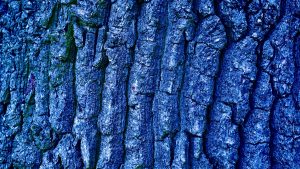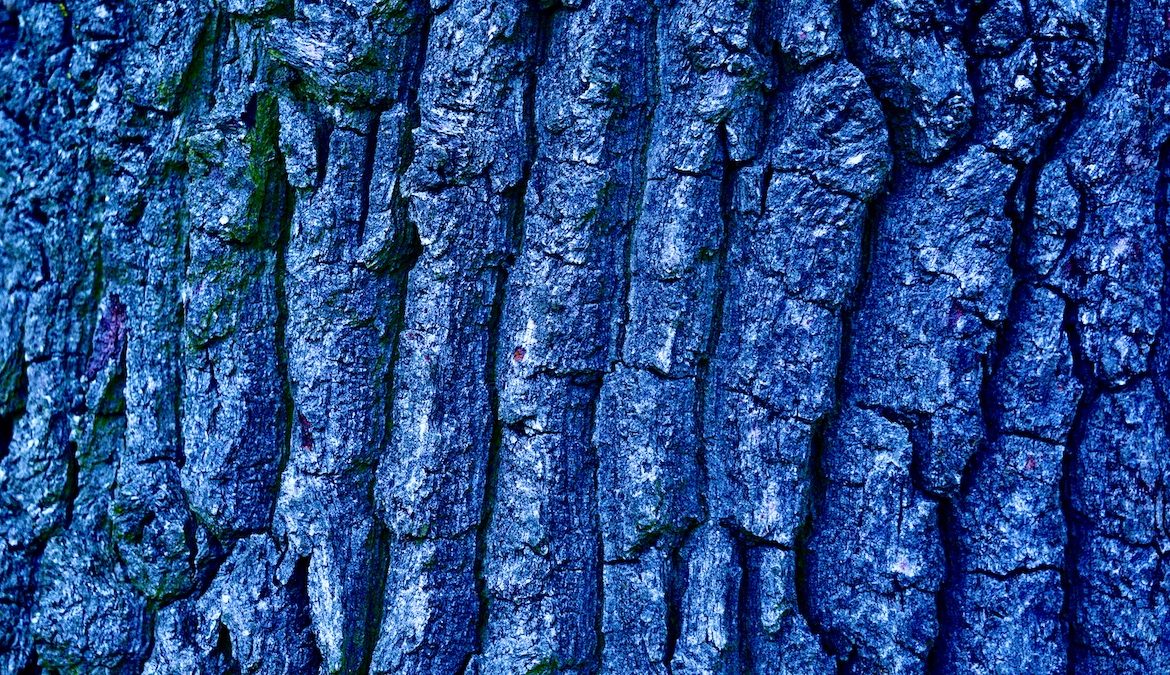
L’albero, credit Mary Blindflowers©
James Mercer Langston Hughes (1 Febbraio 1901 – 22 Maggio, 1967), Festus Claudius “Claude” McKay OJ (15 Settembre 1890 – 22 Maggio, 1948) e Harold Hart Crane (July 21, 1899 – April 27, 1932), sono poeti modernisti della Harlem Renaissance, poco conosciuti in Italia. Vi proponiamo una traduzione di alcune poesie che affrontano la questione razziale in America e l’alienazione della vita in città.
Traduzione di Mariano Grossi©
Hughes, McKay, Crane, poesie
.
Langston Hughes
Harlem Sweeties
Have you dug the spill
Of Sugar Hill?
Cast your gims
On this sepia thrill:
Brown sugar lassie,
Caramel treat,
Honey-gold baby
Sweet enough to eat.
Peach-skinned girlie,
Coffee and cream,
Chocolate darling
Out of a dream.
Walnut tinted
Or cocoa brown,
Pomegranate-lipped
Pride of the town.
Rich cream-colored
To plum-tinted black,
Feminine sweetness
In Harlem’s no lack.
Glow of the quince
To blush of the rose.
Persimmon bronze
To cinnamon toes.
Blackberry cordial,
Virginia Dare wine—
All those sweet colors
Flavor Harlem of mine!
Walnut or cocoa,
Let me repeat:
Caramel, brown sugar,
A chocolate treat.
Molasses taffy,
Coffee and cream,
Licorice, clove, cinnamon
To a honey-brown dream.
Ginger, wine-gold,
Persimmon, blackberry,
All through the spectrum
Harlem girls vary—
So if you want to know beauty’s
Rainbow-sweet thrill,
Stroll down luscious,
Delicious, fine Sugar Hill.
Langston Hughes
Le dolcezze di Harlem
Hai succhiato ciò che riversa
la collina di zucchero?
Porta le tue scarpe da ginnastica
su questo brivido color seppia:
ragazzina di zucchero bruno,
chicca al caramello,
bimba di oro mielato
abbastanza dolce da mangiare.
ragazzina dalla pelle di pesca,
caffè e panna,
tesoro di cioccolata
fuori da un sogno.
Colorata alla noce
o al cacao marrone,
con le labbra di melagrana
orgoglio della città.
Colorata di ricca panna
al nero tinto di prugna,
di dolcezze femminili
non c’è mancanza ad Harlem.
Bagliore di melacotogna
per il rossore della rosa.
Bronzo kaki
ai tuoi alluci di cannella
Sciroppo di more,
vino di Virginia Dare –
Tutti quei dolci colori
profumano la mia Harlem!
Noce o cacao,
fammi ripetere:
caramello, zucchero di canna,
una chicca al cioccolato
caramella di melassa,
caffè e panna,
Liquirizia, chiodo di garofano, cannella
per un sogno di bruno miele
Zenzero, oro di vino,
kaki, mora,
Le ragazze di Harlem
riflettono tutto attraverso la varietà
Così se vuoi conoscere
il dolce brivido arcobaleno della bellezza
Passeggia appetitosamente,
deliziosamente lungo la bella collina di zucchero.
.
Claude McKay
The Tropics in New York
Ananas ripe and green, and ginger-root,
Cocoa in pods and alligator pears,
And tangerines and mangoes and grape fruit,
Fit for the highest prize at parish fairs,
Set in the window, bringing memories
Of fruit-trees laden by low-singing rills,
And dewy dawns, and mystical blue skies
In benediction over nun-like hills.
My eyes grew dim, and I could no more gaze;
A wave of longing through my body swept,
And, hungry for the old, familiar ways,
I turned aside and bowed my head and wept.
Claude McKay
I Tropici a New York.
Ananas maturo e verde e radice di zenzero,
cacao in baccelli e pere alligatore
e mandarini e manghi e uva,
in forma per il premio più alto alle fiere parrocchiali.
Poggiato alla finestra, richiamandomi ricordi
di alberi da frutta carichi di ruscelli che cantavano a bassa voce
e albe rugiadose e mistici cieli azzurri
che benedivano colline a forma di suore.
Gli occhi si offuscavano e non riuscivo più a guardare;
un’onda di nostalgia spazzava nel mio corpo,
e, affamato delle vecchie e familiari strade,
mi allontanai, chinai il capo e piansi.
.
Hart Crane
To Brooklyn Bridge
How many dawns, chill from his rippling rest
The seagull’s wings shall dip and pivot him,
Shedding white rings of tumult, building high
Over the chained bay waters Liberty—
Then, with inviolate curve, forsake our eyes
As apparitional as sails that cross
Some page of figures to be filed away;
—Till elevators drop us from our day . . .
I think of cinemas, panoramic sleights
With multitudes bent toward some flashing scene
Never disclosed, but hastened to again,
Foretold to other eyes on the same screen;
And Thee, across the harbor, silver-paced
As though the sun took step of thee, yet left
Some motion ever unspent in thy stride,—
Implicitly thy freedom staying thee!
Out of some subway scuttle, cell or loft
A bedlamite speeds to thy parapets,
Tilting there momently, shrill shirt ballooning,
A jest falls from the speechless caravan.
Down Wall, from girder into street noon leaks,
A rip-tooth of the sky’s acetylene;
All afternoon the cloud-flown derricks turn . . .
Thy cables breathe the North Atlantic still.
And obscure as that heaven of the Jews,
Thy guerdon . . . Accolade thou dost bestow
Of anonymity time cannot raise:
Vibrant reprieve and pardon thou dost show.
O harp and altar, of the fury fused,
(How could mere toil align thy choiring strings!)
Terrific threshold of the prophet’s pledge,
Prayer of pariah, and the lover’s cry,—
Again the traffic lights that skim thy swift
Unfractioned idiom, immaculate sigh of stars,
Beading thy path—condense eternity:
And we have seen night lifted in thine arms.
Under thy shadow by the piers I waited;
Only in darkness is thy shadow clear.
The City’s fiery parcels all undone,
Already snow submerges an iron year . . .
O Sleepless as the river under thee,
Vaulting the sea, the prairies’ dreaming sod,
Unto us lowliest sometime sweep, descend
And of the curveship lend a myth to God.
Hart Crane
Al Ponte di Brooklyn
Per quante albe, gelido dal suo increspato riposo,
le ali del gabbiano lo immergeranno e ruoteranno,
riversando bianchi anelli di tumulto, ergendo in alto
la statua della Libertà sulle acque della baia incatenata!
Poi, con inviolata curva i nostri occhi,
spettrali come vele che si incrociano,
abbandonano qualche pagina di immagini
che debbono essere archiviate;
-finché gli ascensori non ci scaricano dal nostro giorno…
Penso ai cinema, ai giochi panoramici
con le moltitudini curve verso qualche scena lampeggiante
mai svelata, ma reiteratamente acceleratasi,
preannunciata ad altri occhi sullo stesso schermo;
e tu, lungo il porto, a passo d’argento,
come se il sole prendesse possesso di te, sebbene lasciasse
qualche movimento mai speso nella tua andatura,-
in modo implicito la tua libertà ti sta bloccando!
Fuori da qualche sportello di metropolitana, cella o soffitta
un pazzo si affretta verso i tuoi parapetti,
inclinandosi là per un momento, stridula camicia che si gonfia,
uno zimbello cade dal muto carrozzone.
Giù al Muro, dalla trave il mezzogiorno cola nella via,
un dente a strappo dell’acetilene del cielo;
per tutto il pomeriggio le gru volate dalle nubi girano…
i tuoi cavi respirano la bonaccia del Nord Atlantico.
E scura come quel paradiso degli Ebrei,
la tua ricompensa…invero tu concedi approvazione
di anonimato che il tempo non può elevare:
vibrante tregua e perdono invero tu mostri.
O arpa e altare della furia fusa
(come potrebbe mera fatica allineare le tue corde che suonano in coro!)
terrificante soglia della promessa del profeta,
preghiera di paria e il pianto dell’innamorato –
ancora i semafori che sfiorano il tuo rapido
idioma non frazionato, immacolato sospiro delle stelle
che infilano come perline il tuo cammino-condensano l’eternità:
e noi abbiamo visto la notte sollevata nelle tue braccia.
Sotto la tua ombra presso i pilastri ho atteso;
soltanto nel buio è chiara la tua ombra.
I fiammeggianti pacchi della città tutti disfatti,
già la neve sommerge un anno di ferro…
oh, Insonne come il fiume sotto di te,
scavalcando il mare, il sognante tappeto erboso delle praterie,
fino a noi infimi talvolta estenditi, discendi
e della tua curvatura presta un mito a Dio.
.
Claude McKay
When Dawn comes to the City
When Dawn comes to the City
The tired cars go grumbling by,
The moaning, groaning cars,
And the old milk carts go rumbling by
Under the same dull stars.
Out of the tenements, cold as stone,
Dark figures start for work;
I watch them sadly shuffle on,
‘Tis dawn, dawn in New York.
But I would be on the island of the sea,
In the heart of the island of the sea,
Where the cocks are crowing, crowing, crowing,
And the hens are cackling in the rose-apple tree,
Where the old draft-horse is neighing, neighing, neighing,
Out on the brown dew-silvered lawn,
And the tethered cow is lowing, lowing, lowing,
And dear old Ned is braying, braying, braying,
And the shaggy Nannie goat is calling, calling, calling
From her little trampled corner of the long wide lea
That stretches to the waters of the hill-stream falling
Sheer upon the flat rocks joyously!
There, oh, there! on the island of the sea,
There would I be at dawn.
The tired cars go grumbling by,
The crazy, lazy cars,
And the same milk carts go rumbling by
Under the dying stars.
A lonely newsboy hurries by,
Humming a recent ditty;
Red streaks strike through the gray of the sky,
The dawn comes to the city.
But I would be on the island of the sea,
In the heart of the island of the sea,
Where the cocks are crowing, crowing, crowing,
And the hens are cackling in the rose-apple tree,
Where the old draft-horse is neighing, neighing, neighing
Out on the brown dew-silvered lawn,
And the tethered cow is lowing, lowing, lowing,
And dear old Ned is braying, braying, braying,
And the shaggy Nannie goat is calling, calling, calling,
From her little trampled corner of the long wide lea
That stretches to the waters of the hill-stream falling
Sheer upon the flat rocks joyously!
There, oh, there! on the island of the sea,
There I would be at dawn.
Claude McKay
Quando arriva l’alba in città
Quando arriva l’alba in città.
Le auto stanche prendono a brontolare attorno,
le auto lamentose, gementi,
ed i vecchi carretti del latte prendono a brontolare attorno
sotto le stesse stelle smorte.
Fuori delle case popolari, fredde come pietra,
scure figure partono per il lavoro;
le vedo trascinarsi tristemente,
è l’alba, l’alba a New York.
Ma io vorrei stare sull’isola del mare,
nel cuore dell’isola del mare,
dove i galli stanno cantando, cantando, cantando,
e le galline facendo coccodè nell’albero di mela rosa,
dove il vecchio cavallo da tiro sta nitrendo, nitrendo, nitrendo,
fuori sul bruno campo erboso di rugiada argentea,
e la mucca legata sta muggendo, muggendo, muggendo,
e il caro vecchio Ned sta ragliando, ragliando, ragliando,
e la villosa capra Nannie sta chiamando, chiamando, chiamando
dal suo piccolo angolo calpestato della lunga e ampia prateria
che si estende fino alle acque del torrente collinare che cade
a strapiombo sulle rocce piatte gioiosamente!
Là, oh, là! Sull’isola del mare,
là vorrei stare io all’alba.
Le auto stanche vanno brontolando attorno,
le pazze, pigre auto,
e gli stessi carretti del latte vanno brontolando attorno
sotto le stelle morenti.
Un solitario strillone si affretta,
canticchiando una canzonetta recente;
Rosse strisce si accendono attraverso il grigio del cielo,
l’alba arriva in città.
Ma io vorrei stare sull’isola del mare,
nel cuore dell’isola del mare,
dove i galli stanno cantando, cantando, cantando,
e le galline facendo coccodè nell’albero di mela rosa,
dove il vecchio cavallo da tiro sta nitrendo, nitrendo, nitrendo,
fuori sul bruno campo erboso di rugiada argentea,
e la mucca legata sta muggendo, muggendo, muggendo,
e il caro vecchio Ned sta ragliando, ragliando, ragliando,
e la villosa capra Nannie sta chiamando, chiamando, chiamando
dal suo piccolo angolo calpestato della lunga e ampia prateria
che si estende fino alle acque del torrente collinare che cade
a strapiombo sulle rocce piatte gioiosamente!
Là, oh, là! Sull’isola del mare,
là vorrei stare io all’alba.
.
DESTRUTTURALISMO Punti salienti
DESTRUTTURALISMO Punti salienti

